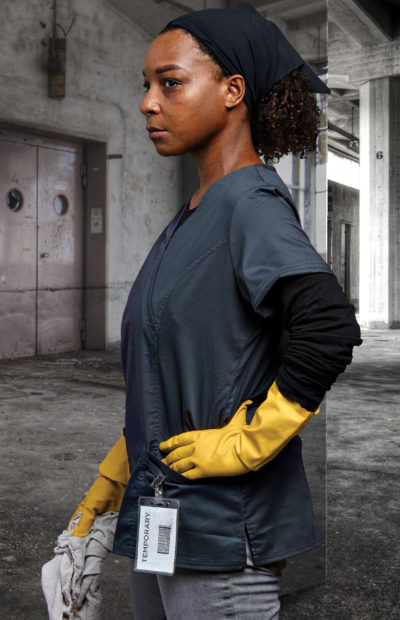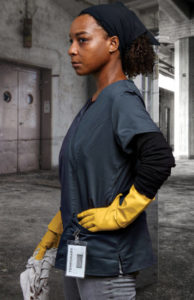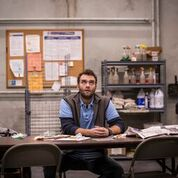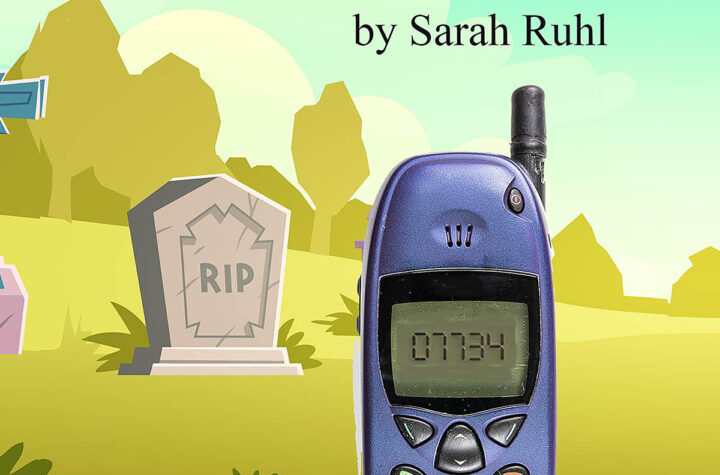
 [rating=3] There are often times when placing a rating on a play is almost impossible. Do we judge a play by the overall production? By the acting? The script? The direction? Members of the Jeff Awards Committee have a different set of rules. They judge different parts and if there enough “positive votes”, it goes on to the next step. As a “reviewer” my job is to draw for my readers a portrait of what they might see if they opt to make the investment into the production I am reviewing. Is the play a good value for the patron? Will they feel entertained? Will they enjoy learning more about a time? a place? a person? My job is not as easy as many think!
[rating=3] There are often times when placing a rating on a play is almost impossible. Do we judge a play by the overall production? By the acting? The script? The direction? Members of the Jeff Awards Committee have a different set of rules. They judge different parts and if there enough “positive votes”, it goes on to the next step. As a “reviewer” my job is to draw for my readers a portrait of what they might see if they opt to make the investment into the production I am reviewing. Is the play a good value for the patron? Will they feel entertained? Will they enjoy learning more about a time? a place? a person? My job is not as easy as many think!
Tonight, at Lookingglass Theatre, in conjunction with Dark Harbor Stories, I was a member of a full house, to bear witness to the United States Premiere of “Beyond Caring”, written and directed by Alexander Zeldin. Who are these people? The people one might call “Beyond Caring”? They are all around us. They are the workers who take on the meaningless jobs, temp or full- time in factories, fields, restaurants, discount stores and of course, the food service industry.They are “survivors”. The people who live from day-to-day, hoping that come tomorrow they will still be needed on the temp line they have been at. They are the people who we do not see, and this being the case, how could we care for them or about them?
This is a 90 minute ( no intermission) story that to some will seem to be a waste. It doesn’t reflect any part of their lives or the people who they have in them. The reason for my lower rating than I might give Lookingglass on a regular basis, is that the story isn’t deep enough and the actors, while bringing great characters to life, did not project as loud and clear as they should have, making it hard to stay with the stories of each character. Zeldin does take a deep, and very painful look at these people. Anyone who has ever worked in a factory setting, part-time or as a temp hoping to get put on full-time, will easily get into the story. They have lived it. Hoping that you will earn the right to stay on and perhaps get some benefits is what it is all about.
When I was an actor, I did several stints in factories. Most of the time, I was given priority positions because I could read and type. I could do more than just clean or pack cartons. In watching this production which takes place in a food plant, where people of color are hired as temps to do the clean-up work. Each one that is hired knows that this is a short-term position with no benefits and tight schedules, but it is a job and that is what they need. The “boss” Ian ( a solid performance by Keith D. Gallagher) although a fully employed worker, is an individual one might call a “loner”. His workers have no respect for him, only fear that with one signature on a form, their dreams (and paychecks) are over!
 As the play begins, we are in a large store-room type of area (realistically designed by Daniel Ostling, who also did the lighting). We meet Phil ( deftly handled by Edwin Lee Gibson) a large African-American who as we learn along the way is a loner who has been working as a temp for several years. He knows more than he lets on and never steps up to Ian ( or at least almost never). Ian is hiring three new workers. Tracy ( J. Nicole Brooks) who is tough, Sonia (Wendy Mateo) who is quiet and very alone and Ebony-Grace (Caren Blackmore) who will grab your heart-strings before the 90 minutes have elapsed. These three ladies are all unique and different from one another. Each has a story that slowly leaks out, but to the average audience member, not someone they know or have ever known (or probably ever will).
As the play begins, we are in a large store-room type of area (realistically designed by Daniel Ostling, who also did the lighting). We meet Phil ( deftly handled by Edwin Lee Gibson) a large African-American who as we learn along the way is a loner who has been working as a temp for several years. He knows more than he lets on and never steps up to Ian ( or at least almost never). Ian is hiring three new workers. Tracy ( J. Nicole Brooks) who is tough, Sonia (Wendy Mateo) who is quiet and very alone and Ebony-Grace (Caren Blackmore) who will grab your heart-strings before the 90 minutes have elapsed. These three ladies are all unique and different from one another. Each has a story that slowly leaks out, but to the average audience member, not someone they know or have ever known (or probably ever will).
I certainly do not want to give away the details of this class and racial saga. One that faces American cities everyday, but there are some stories that will alarm you. Many of us hear the stories of the migrant field workers who toil all day for shelter and food and a little send-home-to-Mexico money. But, in this tale, we see something very similar happening in the big city. In fact, to make it very “big city”, Tracy is wearing a White Sox cap from the very onset thru the entire story. That is Chicago and also “south-side”, where more “people of color” reside. One of the characters, as it turns out, has no home, and is staying in the factory after all are gone, to have a place that is warm and safe to sleep. Not possible, you might say, but years ago, I had a rep working for me, that I learned had been living in the sales office basement for several weeks, before he was found out. Survival is what it is all about!
The interaction between the workers is realistic. These are solitary souls, alone, in need of friendship and “family”. Their co-workers , while they are competing for the so-called perm positions, do become the extended family they are lacking. I felt that as powerful as this story is and the realism of the characters, that perhaps Zeldin needed to go just a little deeper. The ending was very abrupt. I knew it was over and started to applaud, but the rest of the audience did not, until the lights came back up for the curtain call (there is no curtain at Lookingglass). The gentleman sitting next to me said he thought that the ending was not satisfying for him. I think it is, but I would love to know what becomes of these workers- these people that no one cares about. We should all want to know if any relationships develop between them. There is an intense sex scene, so be aware. There is reason to feel that these uncared for people, do care- maybe about and for each other. I know that I do care!
On the technical side, I loved the music (Josh Anio Grigg, who also did the sound/hard to hear at times) and Mara Blumenfeld’s costumes were very realistic. The hardest worker on tech had to be the Properties designer, Amanda Hermann, who probably spent a great deal of time at her local Ace or cleaning supply outlet. She covered it all and the machines they used reminded me of my days of working in a factory.
“Beyond Caring” will continue at Lookingglass Theatre located inside the Historic Water Tower Water Works, 821 N. Michigan Avenue (at Pearson) thru May 7th with performances as follows:
Thursdays 2 and 7:30 p.m.
Fridays 7:30 p.m.
Saturdays 2 and 7:30 p.m.
Sundays 2 and 7:30 p.m.
Tickets range from $40-$75 and can be ordered at 312-337-0665 or online at www.lookingglasstheatre.org
Discounted parking is available at Water Tower, but also at Olympia Centre (entrance on Chicago Avenue)- bring your card to the theater for validation.
Students tickets are $20 for every show subject to availability-day of performance.
April 20th is open-captioned performance and on the 27th, the touch-tour/audio described performance (tour at 6 p.m.)
There are some other special programs that can be found on the website www.lookingglasstheatre.org
Hats off to Lookingglass!
They have made the show available to temp workers and will continue to do so during the run. If your company is interested in sponsoring some workers who might otherwise never be exposed to something like this, contact the theater.
The theater is bringing, through Chicago Worker’s Collaborative workers and family members from Little Village, Englewood, Elgin and Waukegan to Sunday afternoon performances. They will be provided with transportation to and from the theater, tickets and lunch at Foodlife in Water Tower. What a wonderful gesture! Lookingglass does CARE!
To see what others are saying, visit www.theatreinchicago.com, go to Review Round-Up and click at “Beyond Caring”







More Stories
“Dead Man’s Cell Phone”
“the distrikt of lake michigun”
“Mother Courage and Her Children” reviewed by Jacob Davis